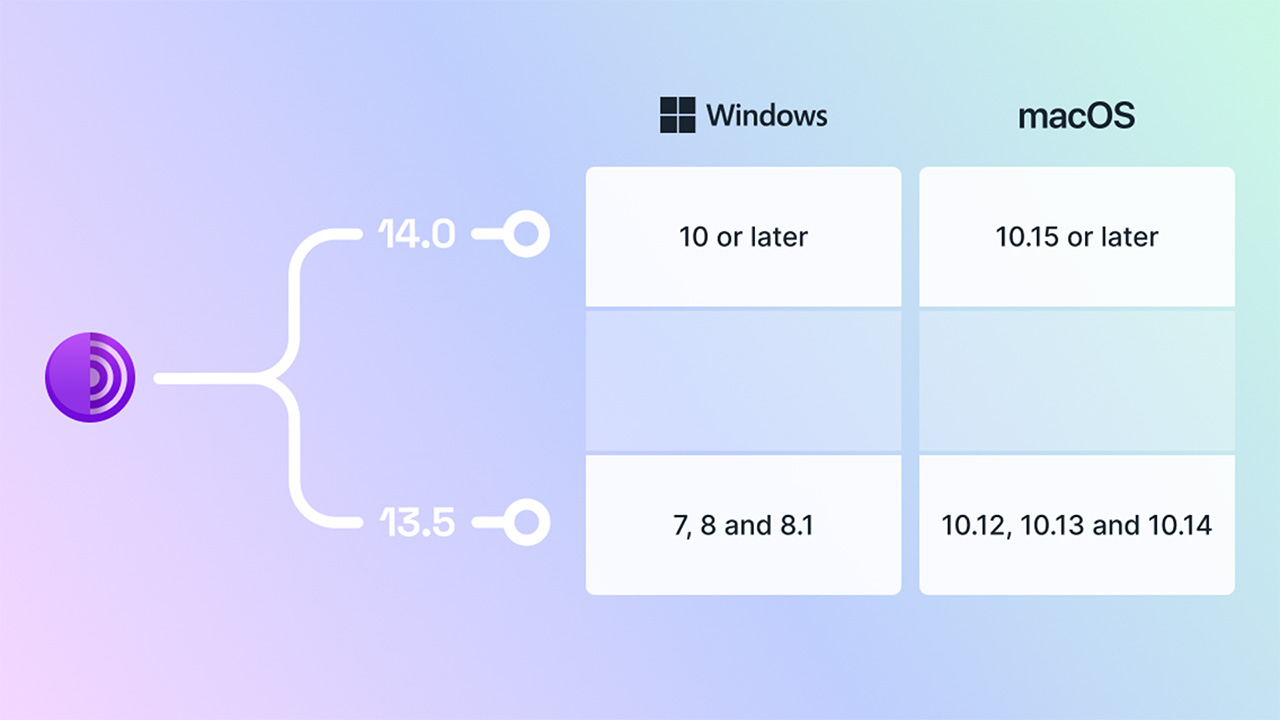Tor Project releases Tor Browser 14.0 – what you need to know
Upgrading to Tor Browser 14.0? Here's everything you need to know

On 22 October, 2024, the Tor Project released Tor Browser 14.0, available to download now. The browser, well-known as the only way to access the encrypted Onion Network, makes it more difficult to trace a user's internet activity, enabling anonymous communication and surveillance protection.
This is the first stable release based on Firefox Extended Support Release (ESR) 128, and Tor has completed its annual ESR transition audit as part of the process. Changes in Firefox that may negatively affect the privacy and security of Tor Browser users have been reviewed and addressed, and final reports for this audit are available in the tor-browser-spec repository.
Tor Browser's typography, inherited from Firefox, has also been updated to reflect the most recent patterns and styles used. The changes include heavier headings and changes to line heights, intended to improve font compatibility and accessibility.
Many technical challenges have been overcome and the release includes a series of improvements to the usability and compatibility of Tor's fingerprinting protections. This has been done without compromising their effectiveness, allowing Tor to enable useful features like picture-in-picture, screenshots, and more.
What's new
In previous versions of Tor Browser for Android, users could request a "New identity" by interacting with a persistent notification that appeared while Tor Browser was running. No such feature was available in the app's user interface itself, and it could only be enabled outside the app. This feature did not perform the same steps as Tor Browser for desktop to reset your identity, such as closing all tabs, clearing all cookies, and wiping browsing history.
Most Android users were relying on this feature to request a new circuit – the connection between your device and the page you're accessing – for a broken website rather than resetting their identity. This new update brings the desktop feature "New circuit for this site" to Android, allowing mobile users to request a new circuit in a more direct way.
Tor Browser 14.0 brings extended support for legacy platforms. Users of Windows 7, 8, and 8.1, and macOS 10.12, 10.13, and 10.14 were warned Tor Browser 13.5 was the last major update to support their platforms. However, these platforms will continue to receive critical security updates on a temporary basis until at least March 2025.
Tor Browser 13 is based on Firefox ESR 115, which Mozilla has announced will continue to receive critical security updates until at least March 2025, with the intention to re-evaluate at the beginning of the year.

The upshot is that the Tor Browser user-base will be split across two update paths. Users of Windows 10 or later, and macOS 10.15 or later will be updated to Tor Browser 14.0. Users of legacy platforms will remain on Tor Browser 13.5, with Tor releasing new versions of Tor Browser 13.5 whenever critical security updates are made available for Firefox ESR 115.
This will only be temporary and depends on Mozilla's timetable, and Tor strongly recommends legacy platforms users update their operating systems to receive Tor Browser 14.0. Keeping the browser up to date is critical to protecting your privacy, security, and anonymity online.
Known issues
There are some known issues that come with Tor Browser 14.0, most notably affecting Android and Windows users. Users on Android have been unable to update their browser if it was downloaded via F-Droid. Tor states the Google Play Store is unaffected and Tor Browser 14.0 can be downloaded from there in the interim. Alternatively, affected users may download and install the APK for Tor Browser 14.0 directly from their download page, although APKs do not update automatically.
For Windows users, running Tor Browser in compatibility mode in Windows 10 and 11 can make it appear as though you're using Windows 7. Users of these operating systems will need to switch off compatibility mode before they can update to Tor Browser 14.0.
How Tor differs from a VPN
The Tor Browser is often considered an alternative or replacement for the best VPN services, but the two differ significantly. The main difference comes down to privacy vs anonymity – VPNs don't grant total anonymity. In truth, the only anonymity gained from VPNs is through "safety in numbers" if there are lots of people using the same server, at the same time. Anonymity also relies on VPN providers not tracking you through IP and/or usage logging. No VPN we recommend does this, although many lesser providers do.
VPNs are far more useful for everyday use but Tor also has its merits. They are difficult to compare at face value but our guide on Tor vs VPNs details their similarities and differences, helping you gain a clearer understanding of which option is best for you.

George is a Staff Writer at Tom's Guide, covering VPN, privacy, and cybersecurity news. He is especially interested in digital rights and censorship, and its interplay with politics. Outside of work, George is passionate about music, Star Wars, and Karate.
